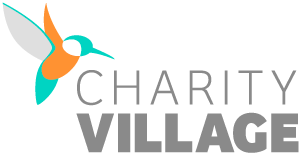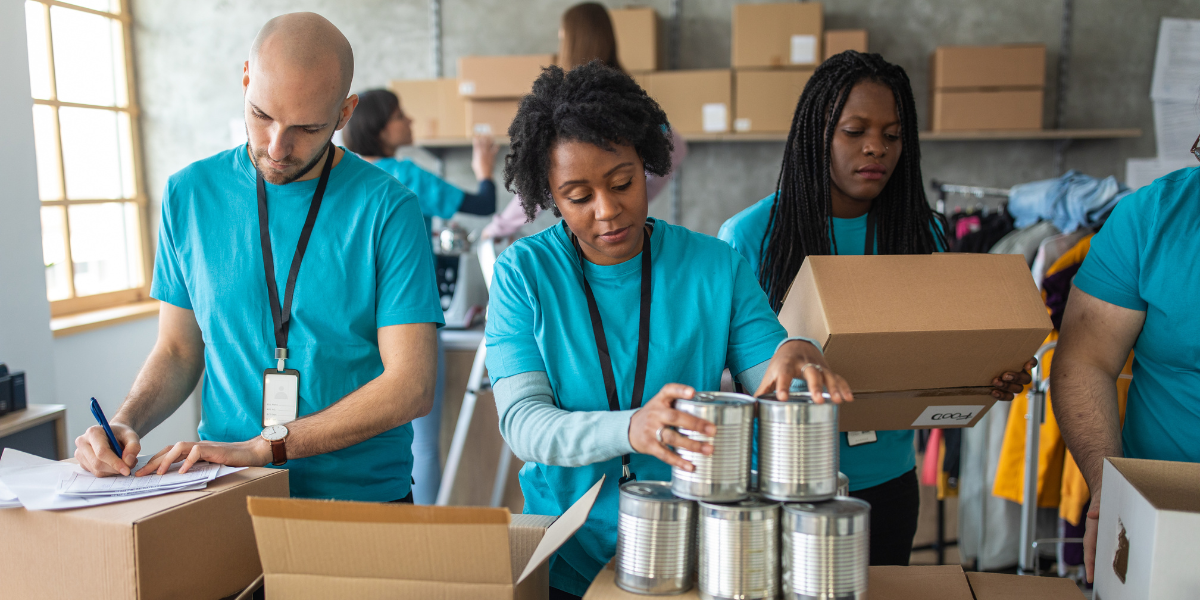In our August 2023 CharityVillage Connects podcast episode, we spoke with volunteer engagement professionals from across the country to determine how organizations might address the volunteer shortage that is impacting programs and communities.
As part of the episode, we interviewed Megan Conway, President & CEO of Volunteer Canada. During our conversation, Megan offered key insight into the challenges organizations are currently facing, offered context around how these trends have been developing, and gave her thoughts on how volunteerism could be radically reimagined.
Megan kicked off the conversation by discussing the challenges faced by many organizations across the country, who are finding it difficult to bring volunteers back after the pandemic, or to recruit new volunteers to their programs.
Megan Conway: So beginning in the later part of the fall in 2022, I began hearing of anecdotal stories across the country of organizations, small grassroots community organizations, hospitals, and in all various places across the country, indicating that they have had difficulty having volunteers return to volunteering. That was validated in the November 2022 Business Conditions Survey by Statistics Canada that indicated that approximately 60% of organizations have indicated difficulty in recruiting and retaining volunteers. And correspondingly, there’s been approximately 30% of organizations that have had to change or close programs or the entire organization itself has had to shut down because of the difficulty in finding volunteers.
From January onwards in this calendar year, it’s been a bit of a nonstop drum, where either the media in different communities has been calling or organizations themselves have been reaching out and saying, we’re really struggling to find volunteers, can you help us? And there’s a whole number of reasons for that, but I think we’re seeing a perfect storm at this moment in time where there’s a high demand on frontline community organizations like food banks, like shelters, even recreational programming in communities like soccer clubs and hockey organizations. They’re not finding people to volunteer and there’s a corresponding impact then on service delivery, whether it’s a two-year waitlist to participate in a program like Girl Guides on the west coast, or Meals on Wheels programs completely shutting. I think we’re seeing some major impacts here of volunteers not returning.
We asked Megan if these are new trends stemming from COVID-19 or whether these trends were starting to be seen prior to the pandemic.
Megan Conway: I think there’s a whole bunch of different reasons for the situation we’re currently seeing ourselves in. One of the things I want to say also is that we believe at Volunteer Canada that individuals actually want to participate and contribute and volunteer. So one of the things we’ve heard anecdotally is that people are reprioritizing coming out of the pandemic. We’re hearing things like the cost of living being high and that there are barriers to participation that may be greater than they were historically. So, you know, if you’re having to ensure you’re able to put food on the table, you may not have as much time to go out and volunteer. That’s a significant issue, I think. Costs of police record checks in some jurisdictions are still high, and that’s it. That’s a barrier to participation.
People’s time is not what it was. I think there’s a complexity to modern life that is…not totally simple all the time. You’ve got to be committed to what you’re doing. There’s a high level of commitment in time and other resources required to make that work for individuals. I think we’ve prided ourselves as a country of being a nation of people who participate. You know, approximately 80% pre-COVID, that’s coming back to the General Social Survey of Giving, Volunteering, and Participation data from 2018, volunteered either formally or informally.
We’ve seen anecdotally a decrease in that. We know that older people have historically been the ones to give a huge amount of their time. There may not be as many older adults who volunteer, but they give large amounts of time. And we’re hearing from research done from places like Volunteer Victoria, for instance, that older adults have greater concerns around COVID and their own personal health and safety. So they’re not coming back to volunteering in the same ways.
We know that there’s larger numbers of young people who volunteer, maybe in smaller amounts of time, and they want to do it totally differently. The way that they’re wanting to participate looks different. It’s maybe more cause-based volunteering, more social activism. It’s not exactly through a traditional organization, necessarily.
So I think this picture has been changing over the last number of years. The other thing I will say is that I think our language in this country around volunteering needs to change. Some of our language is exclusionary. I think sometimes we may not necessarily think about the associated connotations of what it means to volunteer and how that might look differently within an Indigenous community or within diverse ethnocultural communities. And that sometimes those community members are participating in very different ways that are very helpful to community, but they may not use the word volunteer. So I think language is another issue.
I think we haven’t advanced our investment in volunteering in the ways that it needs to be advanced. So I don’t know if those are some snapshots of what we’re seeing, but I think the pandemic accelerated a major transformation in volunteering, and I think it was happening and maybe a little bit bubbling below the surface.
Given these challenging trends, we asked Megan if it’s time for Canadians to radically rethink our traditional approach to volunteering.
Megan Conway: You know, it’s really funny. We’re having a lot of conversations about that within our own organization and with our partners and with our stakeholders. We were identified back in 2019 as the organization that should lead the work on a national action strategy. We’re starting very early days right now, Mary, and developing what a roadmap would look like to build a strategy. We’re maybe thinking of it as a campaign, we’re not totally sure, but we need to think about how do we bring people back to volunteering? What does participation look like today?
We think about the participation movement and about how we encourage Canadians to move and to be physically active. I think we need to think about how we get people to be involved in all sorts of different ways. So we’re doing some work right now to establish what a strategy development process would look like around the work of a national action strategy. Other jurisdictions have them around volunteering and there are ways of directing policy and practice and financial supports to strengthening what happens in terms of volunteering infrastructure.
We’re also doing some work right now to think about how to bring youth back to volunteering. And we’re looking at how we can strengthen some volunteer engagement resources and tools and the ways that we can really help average organizations have the kind of content they need to better support volunteer engagement at a local organizational level. So those are some of the concrete things we’re doing.
But the other big piece, I would say, is this notion of narrative is a key one that I think we need to think about or impact a little bit. I don’t know about you, but I often think about community service in a very negative way. I think it’s something I’m forced to do. And I think we have to flip that on its head and reimagine what it looks like to participate in ways that are bold and inclusive and aspirational for the kind of country we want to build for the next 10 years. And not just what it looked like 20 years ago when my grandmother was doing all that good volunteering work. I think we need new narratives that talk about why volunteering matters at the individual or collective level.
Want to hear more from Megan? Listen to her full interview in the video below.
Listen to Megan and other volunteer engagement experts discuss the current volunteer shortage in our new CharityVillage Connects podcast episode. Click here to listen.












